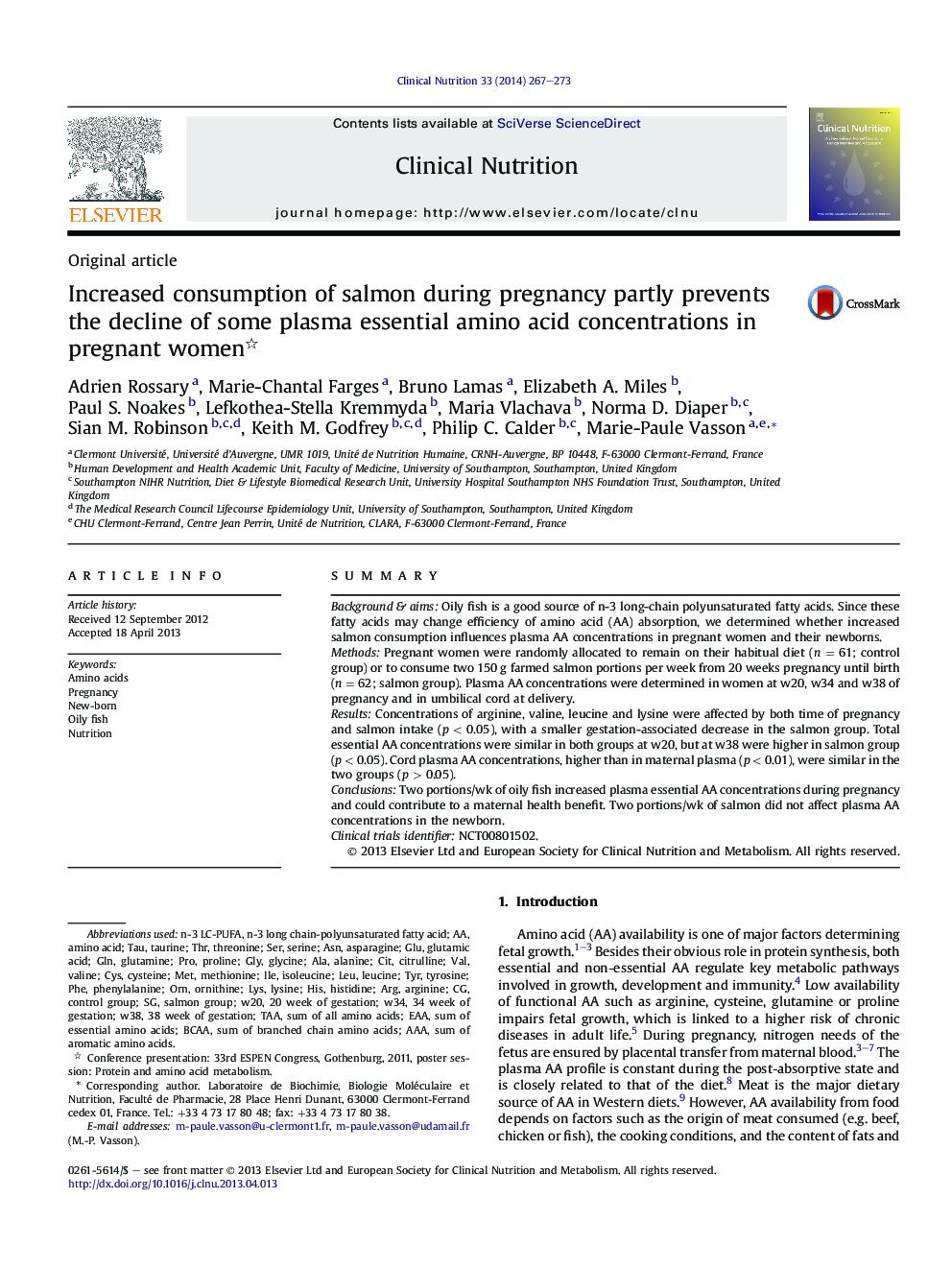| Article ID | Journal | Published Year | Pages | File Type |
|---|---|---|---|---|
| 5871500 | Clinical Nutrition | 2014 | 7 Pages |
SummaryBackground & aimsOily fish is a good source of n-3 long-chain polyunsaturated fatty acids. Since these fatty acids may change efficiency of amino acid (AA) absorption, we determined whether increased salmon consumption influences plasma AA concentrations in pregnant women and their newborns.MethodsPregnant women were randomly allocated to remain on their habitual diet (n = 61; control group) or to consume two 150 g farmed salmon portions per week from 20 weeks pregnancy until birth (n = 62; salmon group). Plasma AA concentrations were determined in women at w20, w34 and w38 of pregnancy and in umbilical cord at delivery.ResultsConcentrations of arginine, valine, leucine and lysine were affected by both time of pregnancy and salmon intake (p < 0.05), with a smaller gestation-associated decrease in the salmon group. Total essential AA concentrations were similar in both groups at w20, but at w38 were higher in salmon group (p < 0.05). Cord plasma AA concentrations, higher than in maternal plasma (p < 0.01), were similar in the two groups (p > 0.05).ConclusionsTwo portions/wk of oily fish increased plasma essential AA concentrations during pregnancy and could contribute to a maternal health benefit. Two portions/wk of salmon did not affect plasma AA concentrations in the newborn.Clinical trials identifierNCT00801502.
